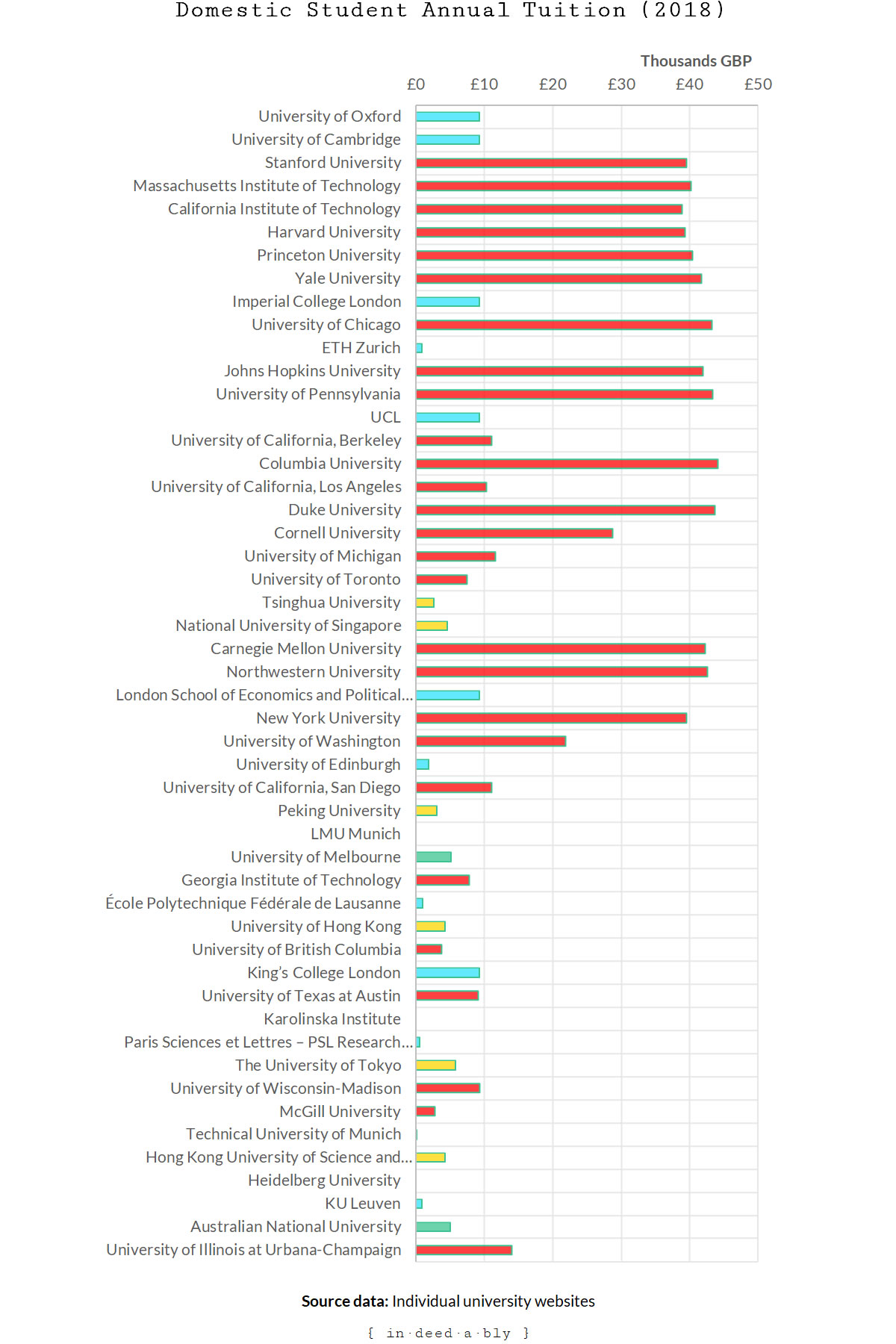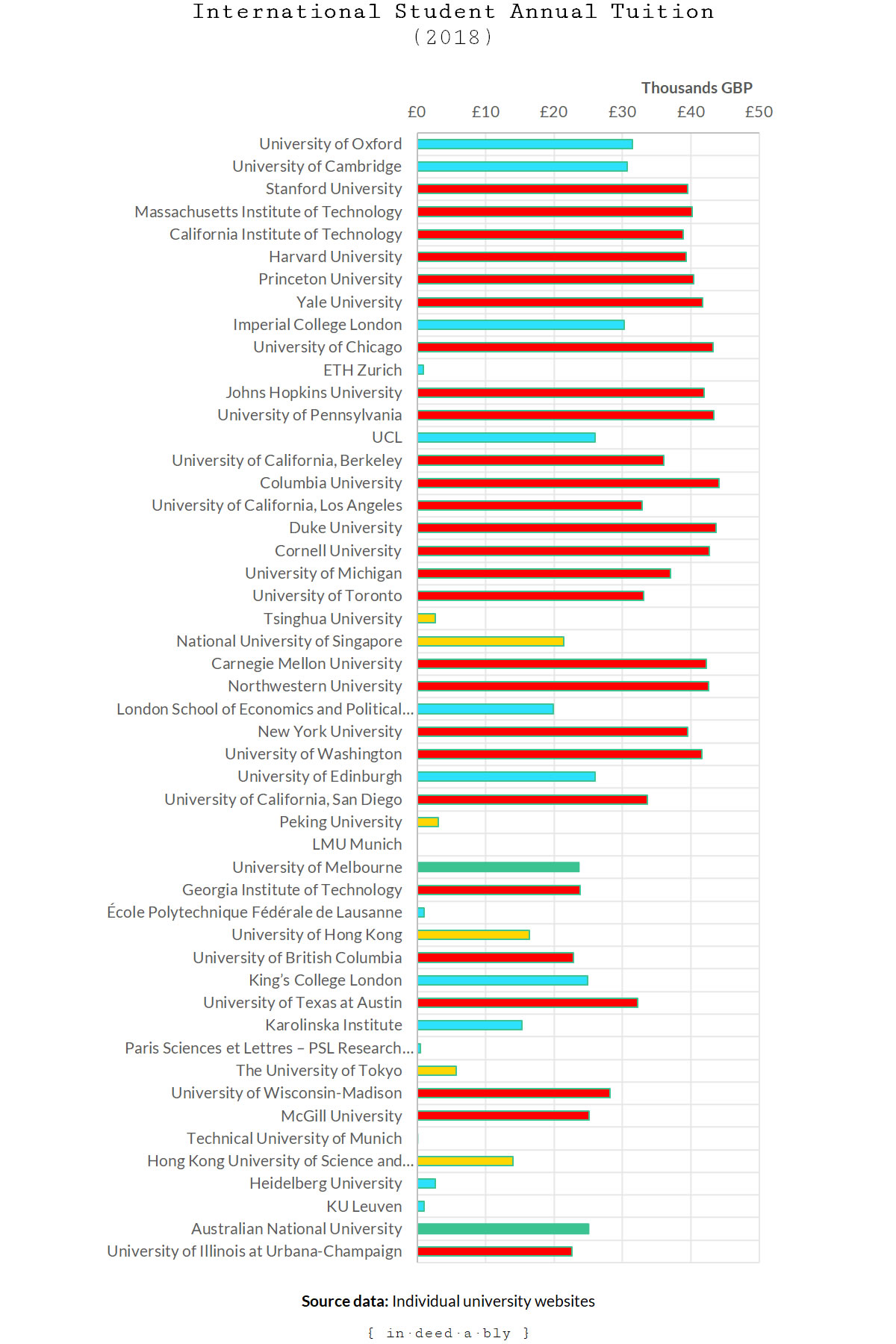“If you want to see me in my underwear, meet me outside the bar tomorrow at 12:30. If you want to see me out of my underwear, you’ll have 5 minutes to catch me!” flirted the very fit blonde behind the university bar.
My jaw dropped.

Scooby Doo. Image credit: Scooby Doo Wikia.
My tongue unspooled like Scooby-Doo eyeing off a sandwich.
My third day at university, and so far I was loving it. The girls in high school were nothing like this!
The next day I strutted into university square with a spring in my step and a smile of on my face. The sun was shining, the birds were singing, and with the naïve innocence of youth I quite fancied my chances at getting lucky.
There was a strangely festive atmosphere, and a crowd of excited onlookers were all gawking towards the pub’s beer garden.
As I got closer I noticed a crowd of guys milling around in their underwear.
Strange, but based on my brief university experience thus far, not entirely without precedent.
The Undie Run
Leaning against a nearby table was the blonde from the bar, alongside a couple of other athletic looking women. All three were wearing sports bras, scungies, trainers, and amused expressions.
Overhead a banner boldly announced the annual “Orientation Week Undie Run”.
The rules were simple:
- Boys were allowed one item of clothing, in addition to trainers.
- Girls were allowed up to two items of clothing, in addition to trainers.
- Competitors had to run 1,000 metres around the university campus.
- Spectators would bet on the outcome, with all proceeds going to charity.
- There were prizes for the fastest boy, fastest girl, and pair of undies most likely to embarrass the wearer’s mother.
I experienced a faint sinking feeling of impending doom.
Ever the optimist, I wandered over to the girls and said hello.
The blonde barmaid gave me a wry grin, and explained that she and her companions had volunteered to raise money for charity by drumming up entrants to the Undie Run.
She asked if I would be willing to participate?
Casting my eye over the underdressed entrants warming up near the starting line, it was quickly apparent that a pair of tighty whiteys left nowhere to hide those who spent more time in the pub than the gym.
I figured I could probably beat most of them, and as a firm believer in the “if you don’t ask, you don’t get” approach, I asked if the offer still stood?
The blonde gave a mischievous laugh, and assured me if I could keep up then she would honour her promise.
As a stupid horny 19-year-old, that was good enough for me!
Day Four of university: (nearly) naked in public
I quickly stripped off, briefly wishing two things while doing so.
First, that I had worn trainers that day, rather than my trusty boots.
Second, that I had made a more optimal wardrobe choice that morning, rather than the old holey pair of fire-engine red novelty boxers emblazoned with “Used Beers Department” across the front.
There was more than a little laughter amongst the crowd as the girls led me to the starting line. I would like to think it was directed at my boxers.
The blonde leaned over and whispered in my ear that she had been the national age champion over both the 800 metres and 1500 metres.
I would love to be able to tell you that I responded with a suitably witty rejoinder. Truth is, I goldfished.
Then the starter’s pistol fired, and we were off!
Two minutes and forty-five seconds later the blonde crossed the finishing line to win the Undie Run.
Sometime later I also completed the event. I finished closer to the front of the field than the back, but it is safe to say the only prize I won that day was for wearing the most embarrassing undies!
Fortunately for me, the newly appointed student newspaper photographer assigned to cover the event was sufficiently distracted by all the eye candy on display, that he forgot to remove the lens cap from his camera.
Even more fortunately, this pinnacle of my athletic career was in the days before camera phones!
Investing in yourself
University proved to be an entertaining and, for the most part, rewarding experience. I emerged older, wiser, and (slightly) less vulnerable to the wiles of flirtatious blonde in their underwear!
University provided one of the most accessible ways to invest in myself, helping to maximise the value of my time.
It is important to understand both the attributes and limitations that a university graduate generally possesses upon completing a degree.
- Persistence: They invested 3 or more years of their lives pursuing a goal, and achieved it.
- Research skills: They should have developed a reasonable ability to identify, obtain, and apply information.
- (Limited) problem-solving: Taking that information and applying it to craft a cohesive argument about a recommended course of action.
Few graduates possess applied problem-solving skills, largely because much taught tertiary education is focussed on studying rather than actually solving real-world problems!
The real purpose of a university degree
Attaining a degree in an in-demand discipline, awarded by a recognised tertiary brand, assists graduates to land job interviews.
Not jobs themselves.
The price of admission to the interview is paid by their academic pedigree, resume, and more often than not their extracurricular interests. Indeed, the field of candidates selected for my first graduate job interview were chosen because they had worked interesting sounding student jobs: a ballerina, a gravedigger, and a photo lab technician!
What happens from that point forward is down to their intelligence, communication skills, and ability to make friends with the folks interviewing them.
once you’re employed, nobody cares
The disheartening truth is that once you land that first graduate job, beyond the fact that you obtained a degree, nobody particularly cares what units you studied or what grades you earned.
This is hardly surprising, it is a continuation of the educational ladder you have been climbing since starting primary school!
Nobody cared what A levels you studied once you got into university.
Nobody cared about your GCSEs once you had some A levels.
Nobody cared about your SATs scores once you made it into high school.
When viewed through the lens of providing a stepping stone towards gaining employment, the question becomes what price is obtaining a university degree actually worth?
The price of a good education
The internet is full of personal finance horror stories where otherwise smart individuals start their working lives encumbered by mortgage-sized student loans. Those individuals then spend the next 5-10 years digging themselves out of a sizeable financial hole before they can make serious inroads towards setting themselves up for financial success.
The chart below displays the annual tuition fees charged by the top 50 universities for locally based domestic to study for an undergraduate degree. Where there was variance in fees between fields of study then the fees for computer science or engineering was selected.

Note these figures do not include the costs of room and board, as regardless of where a student studies they will need to eat and sleep somewhere. They also exclude any bursaries, grants, or scholarships that it may be possible to apply for.
It shows that studying in North American is far more expensive than in Europe, Asia or Oceania.
Even within North America, it is significantly more cost effective to attend a good State university than a private university. For students really wanting an Ivy League brand on their diploma, it can make a lot of sense to study at a State university for the early part of their degree, then transfer to the more expensive private university for the final part of the course.
Studying abroad
However there is no rule that says you have to attend a university in your native country.
Competition amongst universities is fierce for international university students, who make up approximately 19% of university enrolments in the United Kingdom, and collectively contributed an estimated £25.8 billion to its economy in 2015 alone.
In many parts of the world universities charge international students higher tuition fees than their domestic classmates.
However there is a geographic arbitrage opportunity available, where even those higher tuition fees faced by international students may still be more cost-effective than the domestic tuition fees charged back home.
The chart below displays the international student annual tuition fees for those same top 50 universities. As was the case previously, the fees were for an undergraduate degree, and where fee variance existed by field of study then computer science or engineering was used.

Choosing to study in France, Germany, Switzerland or China could potentially save a university student tens of thousands of pounds over the course of obtaining their degree.
What if I don’t speak another language?
The most obvious obstacle to taking advantage of this geographic arbitrage opportunity is that of language. How many high school students are sufficiently fluent in a second language, that they could successfully undertake a degree in that second language?
Not many.
However all is not lost. There is an ever increasing number of tertiary institutions around the world offering degrees taught in English. In Germany and the Netherlands alone, in 2017 there are more than 2,000 courses being taught in English. China and Taiwan collectively offered another 635 courses.
The map below illustrates the number of institutions from the top 1,000 global universities offering courses taught in English.
Countries offering university courses taught in English, by number of institutions. Source data: Times Higher Education.
University isn’t a must… but it helps
Of course attending university isn’t the only route towards financial success, and isn’t suited to everyone. It certainly can make it easier however, particularly if you are more inclined to work for someone else rather than take on the entrepreneurial risks associated with working for yourself.
An argument could be made that paying high tuition fees to study in a field that experiences low demand or low salaries is at best an expensive indulgence, and at worst a financial own goal.
Whether university degrees will still be a minimum entry requirement for many careers in the future is an interesting debate.
Just-in-time learning capabilities from the likes of YouTube and Udemy quickly produce semi-capable (if not yet competent) students for a low investment of time and money.
Firms like the Lambda School are adopting a vocational style approach, offering to teach skills for free and then assisting students to gain relevant employment, in return for 17% of their income from their first two years earnings.
This initially sounds like some form of indentured servitude, but given the relatively low salaries enjoyed by graduates, it may actually be a win for many of the students who sign up.
University fees are optional
The main take away is that paying high university tuition fees is a conscious choice made willingly.
Alternative options for achieving a similar outcome do exist.
Students (and their parents) just need to step back and challenge the premise under which they are making their tertiary education decisions, to ensure they have considered all the available options, rather than just the most convenient ones.
In the last year I have had working for me: a former Norwegian sailor who studied in Hong Kong and now works in the Netherlands; a Brazilian student who studied in London and now works in New York; and a Kiwi data analyst who studied in Dublin and now works in London.
It didn’t matter which university they attended. What mattered is they paid attention to what was taught, and were able to apply that knowledge to help solve the client’s problems.
References
- Go Overseas (2015), ‘10 Universities Where You Can Study Abroad in English‘
- Lambda School (2018), ‘How it Works‘
- Times Higher Education (2018), ‘Worldwide countries with the most English programmes at top universities‘
- Times Higher Education (2018), ‘World University Rankings 2019‘
- Top Universities (2018), ‘Where Can You Study Abroad in English?‘
- Universities UK (2017), ‘The economic impact of international students‘


youngfiguy 30 October 2018
So much wisdom in one post Indeedably! Funnily enough I was at my alma mater last night at a careers event. I was telling them the most important skill they can learn at university is problem solving. It is such a rare skill that it is invaluable in the workplace. Of course, I cautioned that the problem solving in their degree (Math) is under ‘certainty’. In the real world, you have to learn how to make decisions under uncertainty – and nobody will give you any training on how to master that!
Two final thoughts:
“Fortunately for me, the newly appointed student newspaper photographer assigned to cover the event was sufficiently distracted by all the eye candy on display, that he forgot to remove the lens cap from his camera.”
– Pics or it didn’t happen!
University was wild in the 1960s… 🙂
{in·deed·a·bly} 30 October 2018 — Post author
Certainty is a construct of the young! It has been my experience that “age grows wisdom but dilutes certainty“.
Thanks for the backhanded compliment, you young whippersnapper!
On the topic of vintage: is there any truth to the rumour that you will soon be rebranding your website Mr YoungFIGuy? What started out as a factual boast, becomes ironic around the age of 30, before becoming an outright lie sometime before your 40s begin!
youngfiguy 30 October 2018
I’ve still some way to go before hitting the big three-oh. If I’m still blogging by then: 1. god help the poor souls still reading; and 2. it would be a triumph of perseverance unlike anything else I’ve achieved (except for marriage, but Mrs YFG keeps me locked up during the day, so that’s more on her!)
Caveman 30 October 2018
Interesting thoughts! Completely agree with you that that a key thing that a degree gives you is the brand and the badge. But I reckon that is more a reflection of how you did at school as once you’re in a university you are very, very likely to walk out with a 2.1 or a first.
I think I would even question whether you really gain persistence or problem solving (I agree you probably get research skills). I learned persistence from turning up every day to my job in pub kitchens and I learned problem solving when I went travelling by myself (…yes i know I’m middle class…). Uni can give that to you but life and your first job can do it faster
So when I look back to uni I think that the things that I really got besides the badge was:
a) a network (whether I realised it or not at the time); and
b) a sense of what might be possible as I came across people my age who individually and collectively had often already achieved some incredible things.
Anyway thanks for that post…it reminded me of that feeling at 19 of ruling the world!
{in·deed·a·bly} 30 October 2018 — Post author
Thanks for reading Caveman.
Persistence in the sense that you (probably) had to keep showing up for 3-4 years in order to earn the degree. Doesn’t mean you listened, or learned, but does demonstrate a degree of stick-with-it-ness.
I concede problem solving is a stretch, having employed a great many graduates who couldn’t find their own arse with both hands and a road map!
That said, faster doesn’t necessarily equate to higher earning over the longer term. For mine, that is largely down to the individual rather than the education or the awarding institution… but both matter a great deal when trying to get your bum on the seat for that first graduate job interview!
Dr FIRE 31 October 2018
Excellent post Indeedably! I feel like this should be required reading for prospective undergrads. It’s too easy to just follow the path of least resistance, but for many people, including myself at the time, all of these different options just aren’t obvious until you’re already halfway through uni and have slightly more life experience.
{in·deed·a·bly} 31 October 2018 — Post author
Wow, you’re really pumping up my tyres there Dr FIRE, thank you for the kind words.
As somebody smarter than me once said, “If I only knew then what I know now“, we would be somewhat richer for the experience!
TheFIREShrink 9 November 2018
Lots of truth in this post indeedably!
As a product of what is essentially a vocational university course I sit in one of those positions where university fees were an expected trade-off for the long term outcome. Doctors may not earn as much as people think, but it’s still a reasonable return on investment. My brother studied political theory at a fair-middling university. I don’t think his university experience did anything other than open the door to the graduate position he then started (in a completely unrelated field). For him university was about independence and the student experience. Some smart bastard has clocked onto millenials being experience-focused. They’re selling the romanticised student life (sex-ed up in the 90s at the same time as polytecs), for the cost of a nice offset loan to financially inexperienced teenagers. I remember having no more interest at 18 that finding ways to get horizontal.
On the geoarbitrage point, this is something I wish I knew more about when applying to uni. One of my good friends came to the UK from Canada at 18 to study medicine as even with international fees our very good uni was cheaper than the US process. The university I work at now is pitching itself internationally (China, Japan, US) to increase it’s income. Just a shame Brexit will shut lots of EU doors.
{in·deed·a·bly} 9 November 2018 — Post author
Thanks for reading FIREShrink.
A common refrain I’ve heard from the big consultancies is they like to hire starry eyed graduates from outside the IT/finance domains. The theory goes it is easier to teach an “empty head” the way things are done, than it is to have a relevant field graduate unlearn their academic ideas about how things should be done. Whether or not there is merit in that approach, I have no idea.
The impact of Brexit on the UK tertiary sector is larger than just the EU. For example, submissions to the Australian government hearings on potential Brexit related risks and opportunities showed that the local tertiary sector there anticipates being able to poach a significant portion of the UK’s international student market.
PendleWitch 10 November 2018
Very interesting to read – thank you. Can we have an update in 2 years, please?!
{in·deed·a·bly} 10 November 2018 — Post author
Glad you enjoyed it Pendlewitch, thanks for stopping by.
Future dated requests from the audience? Intriguing notion. Hmm….that would require a to-do list, and planning, and organising, and scheduling, and…
ARGH, it’s a trap! A J.O.B. by stealth!